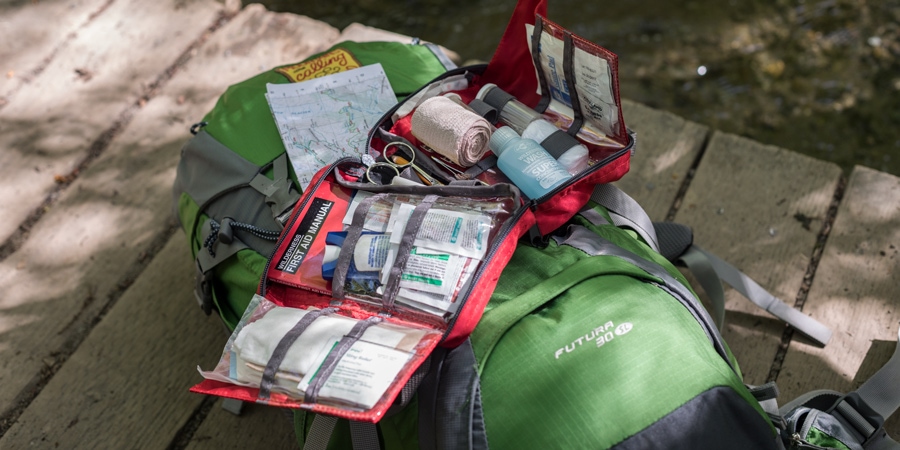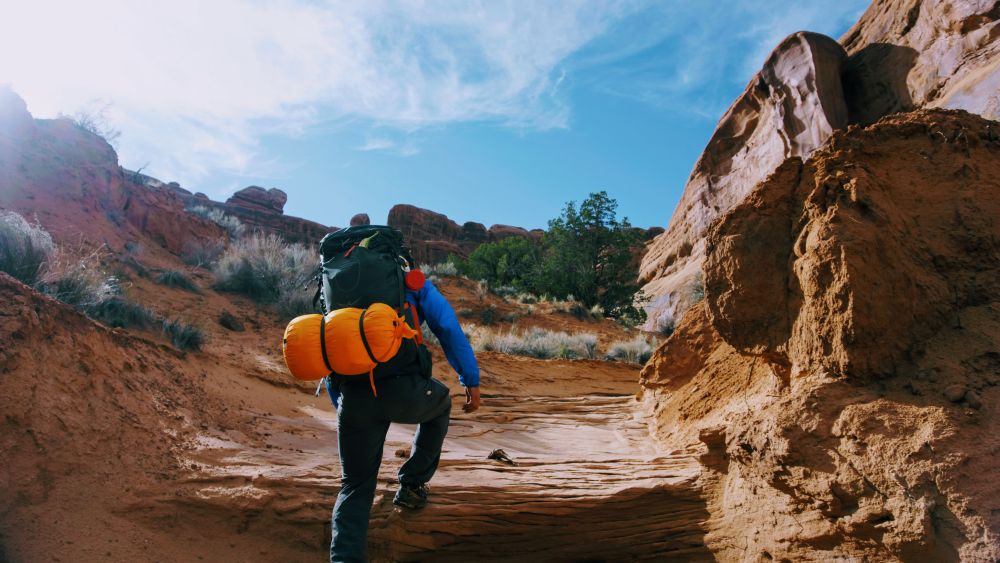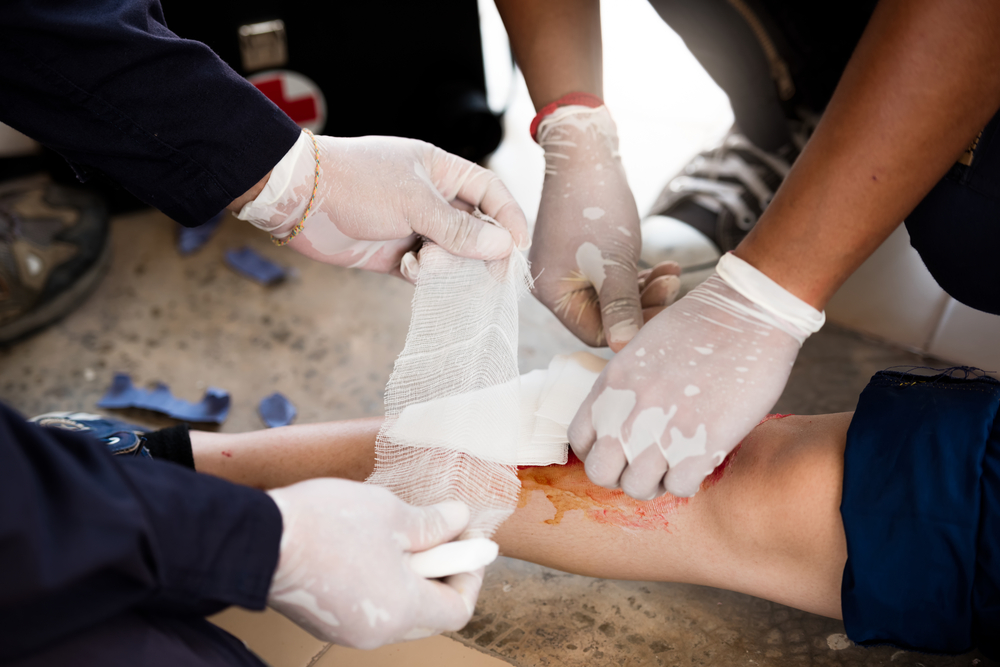You can face an emergency condition where you might have to survive out in the wild. What are the essential steps that will help you survive?
When you are a seasoned camper, preparing for a survival situation will be easy for you due to all the experience you have gathered. But for those who are relatively new to this field, some tips and guidelines can be handy. This article will discuss a list of items that will help you out in a survival situation. They are not meant to provide comfort; they are designed to keep you alive.
Camping Gone Wrong
First, let’s look at a few scenarios that can go very wrong in your camping trip, leading to a survival scenario.
Out of Control Fire
A campfire is one of the most enjoyable activities in any camping trip; however, it can quickly transform into a wildfire. You may try to put the fire out, or you may want to evacuate the scene of the fire. You must only attempt to put the fire out if you feel you can do it yourself. For example, you can use wet towels or shovel dirt onto them to smother the fire. If you are near a weather source, you can throw water around the perimeter of the fire with water buckets.
Unexpected Visit by a Bear
You might be scared out of your wits at seeing a bear at your campsite. Before you react to it, you must be aware that there are only two things that motivate bears: protecting their young and looking for food. Remain calm and try not to provoke the bear, as it is probably just looking for food. Bears do not tend to prey on humans.
Your Raingear Has Failed
While hiking along an uncovered ridgeline, a rainstorm has developed into an intense deluge. Your rain jacket and pants are immediately soaked completely, and your waterproof hiking boots fill with water. The most delicate equipment will sometimes prove insufficient. Always take some time to check the forecast, study historical extremes in a particular region, and prepare a backup plan.
Injured in the Outdoors
The wilderness could be a risky environment, and self-injury is far too common. To begin, always carry a completely loaded first aid kit and other survival supplies with you. Whether you or a group member is hurt, do not panic since this will worsen the situation. Instead, assess the damage and then provide first aid if possible. If required, seek medical attention at a nearby doctor’s office or hospital. This includes animal bites, bee stings, and other allergic reactions.
Getting Lost
Although it probably happens less often than it used to, it is still very possible to get disoriented on a walk, particularly trekking through dense woodland. You can plan your route, bring additional provisions, and notify everyone of your whereabouts. However, if you lose your course, come to a halt and attempt not to panic. Consider where you have been and if you would be willing to retrace the steps logically. If it is dim, it might be prudent to seek refuge for the night and proceed when it is light again.
Collapsed Tent
Check the condition of your tent before your camping trip. However, accidents can happen, and they may get broken in various ways; someone or something may have fallen into it, or it might just be getting old and suddenly break down. Always have supplies for tent repair with you so that you can do minor maintenance. If you do not have any, you may have to depend on nature for a fast repair.
Going through these situations will give you the knowledge of which items are more useful and which don’t work for you as much. Read on to find more recommendations for easy backpacking and camping tips that will prepare you for a survival scenario.
The Right Backpack
The first thing you will need to pack all your essentials is a sturdy camping backpack. It will need to contain all of the following items, and you can also use it to keep valuable things that you pick up along the way, such as a bow drill or a crafted weapon.

You can also use the pack to store the extra material you need for splints, bandages, and building fires. Ensure to select a durable backpack that can tolerate harsh weather conditions such as rain or hail and protect your belongings effectively.
- Knife – A knife is one of the most crucial things you must include in your backpack for a camping trip as they have multiple uses for everyday camping and general use. Having a knife with you increases your chances of survival, so be sure to have at least a pocket knife with you on your camping trip. It is advised to have a fixed-blade knife because it is more resilient and durable due to not having any mechanical movements. It is better to cut branches, bandages, and tarps to build emergency shelters, create weapons and starters for fires, and much more.
- First Aid Kit – It’s a lot easier to treat injuries in a survival situation when you have a first aid kit. When you have a wound causing infections, heavy bleeding, or torn skin, having a first aid kit will make things much less complicated. It will usually consist of bandages, gloves, gauze, cleaning wipes, and other valuable items. Pack a compact-sized kit for easy carrying.
- Compass – In the unfortunate incident that you get lost, you can use a compass to find your way back to civilization. Having a map of the area you are camping in will also prove to be helpful. You can use the compass to navigate the map to find a sign or a road that will get you to a safe location.
- Equipment For Signaling – Being in the wilderness and not having any way of communicating with other people certainly puts you in a survival situation. This is why you should pack essential items that will help you to communicate. It would help if you had a signal mirror that can produce a flash that can be seen for miles by an aircraft. You should flash an S.O.S. signal (three longs, three shorts, three longs) across the sky, signaling to the pilot that you are in danger. It is best to get a signal mirror that comes in a protective pouch and has instructions to know how to use it easily in survival situations. You can also pack a whistle, as the sound of a whistle cannot be mistaken. This whistle can be used to catch the attention of a passing car as you near the main road. It can also be heard by other campers who might be near you in the wilderness and might come to your rescue. You can also use a flashlight to signal for help. The flashlight can also be used to find your way in the dark as it has a good range and can illuminate objects clearly for you at night.
- Hydration System – Water is essential to survive. You should carry a hydration system with you whenever you’re camping, so you don’t run out of water. Buy a sturdy bottle that won’t leak and contain enough water to last you until you get back from your hike. Make sure the size allows you to pack it inside your backpack easily and that it doesn’t get too cumbersome for you to carry when you head out on your hike.
- Cordage – When you are in a survival situation, a rope can come in handy to set up camp. The parachute cord is strong, lightweight, and does not take up a lot of space. A 550 paracord can be extremely useful if you need to tie something down. Dampen the paracord before making your knots, and it will tighten up once it dries. This will be a very secure tie. Cordage can also be used to build emergency shelters, repair tents, attach gear to your backpack, make a splint for broken bones, set up a trap for hunting, and many more.
- Hat – It is a great idea to bring a hat along on your trip. In most places, it gets cold at night, and it will help keep you warm. You need to make an effort to keep your body warm so that your brain remains functional. It is not just useful during the winter but in summers as well. Knowing what items to pack will prepare you for any unexpected survival situation during your camping trip. So be informed and pack the right essentials that will enable you to deal with any emergency.
























































































S O S
three shorts, three longs and three shorts